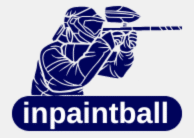Paintball is more than just a game—it’s a lifestyle, a passion, and for many, an adrenaline-fueled escape. But have you ever stopped in the staging area or cleaned your marker and wondered, “Where did this all start?”
As with most things we take for granted in modern life, paintball has a rich and fascinating origin story. Understanding its beginnings gives us a deeper appreciation for how far the sport has come.
Early Tools and Uses Before Paintball
Before paintball was ever considered a recreational activity, the paintball marker had a very different role. In the 1960s, a man named James Hale, working for Daisy Manufacturing, developed a device to help foresters and cattlemen mark trees and livestock from a distance.
This invention, the Nel-Spot 007, was a CO₂-powered, pump-action marker designed not for sport but for practical fieldwork.
The marker shot oil-based paintballs—rough, inaccurate, and far messier than anything you’d want in today’s tournament setup. However, this tool would become the foundation of a future global sport.
The First Game of Paintball
Fast forward to June 27, 1981, in the woods of Henniker, New Hampshire, where a group of 12 friends unknowingly made history.
Among them were Charles Gaines, a writer and outdoorsman; Hayes Noel, a Wall Street stockbroker; and Bob Gurnsey, who helped organize the event.
These men debated whether survival instincts came from nature or were learned. To test their theory, they created a game that would simulate a survival scenario—a capture-the-flag competition using Nel-Spot 007s.
The equipment was basic:
- Oil-based paintballs
- No masks or professional gear
- 12 untrained players divided into teams
Ritchie White won the game without firing a single shot, proving stealth was just as valuable as marksmanship.
Evolution of Paintball in the 1980s
Once the first game ended, Gurnsey saw potential and began to commercialize the concept. He helped open the first paintball field and formed the National Survival Game (NSG) company, which marketed the sport under that name.
By the mid-1980s:
- Paintball fields were opening across the U.S.
- Equipment manufacturers began improving marker reliability
- National tournaments started popping up
This decade laid the groundwork for what would eventually become a global phenomenon.
Technological Advancements Over Time
Paintball technology has evolved dramatically, from the Nel-Spot to the Tippmann 98, the Automag, and today’s high-end electronic markers such as the Planet Eclipse LV2 or DLX Luxe TM40.
Here’s a short review of major developments:
- Semi-automatic markers (late 1980s)
- Electronic hoppers and markers (1990s)
- Speedball-specific designs (early 2000s)
- Wireless Bluetooth controls & OLED boards (2010s–present)
Advancements also came in paintball safety gear:
- Full-face masks replaced shop goggles
- Lightweight jerseys, pods, and air tanks improved mobility
- Chronographs became standard to enforce velocity limits
These improvements made paintball not only safer but also more competitive and exciting.
Global Growth of the Sport
Though it started in the woods of New Hampshire, paintball didn’t stay a backyard game for long. By the late ‘80s and early ‘90s, paintball fields and leagues were popping up in Canada, Europe, and Australia.
Today, you’ll find:
- Millennium Series and NXL Europe in Europe
- Asia World Cup in Malaysia
- Large-scale scenario events in Russia, Brazil, and South Africa
Major events like the World Cup (Kissimmee, Florida) and Living Legends draw thousands of players from around the world.
Paintball has evolved into a highly professional sport, complete with international rankings, sponsorships, and massive fan communities.
Conclusion:
Paintball evolved from a forestry tool to a full-fledged worldwide sport, demonstrating ingenuity, innovation, and a common love of competition.
The first official game in 1981 may appear little by today’s standards, yet without it, we wouldn’t have the fields, formats, or passionate rivalries we enjoy today.
Whether you’re repping your squad in the snake, launching smoke grenades in a scenario game, or just plinking with friends in the woods, you’re part of a history that’s still unfolding.

